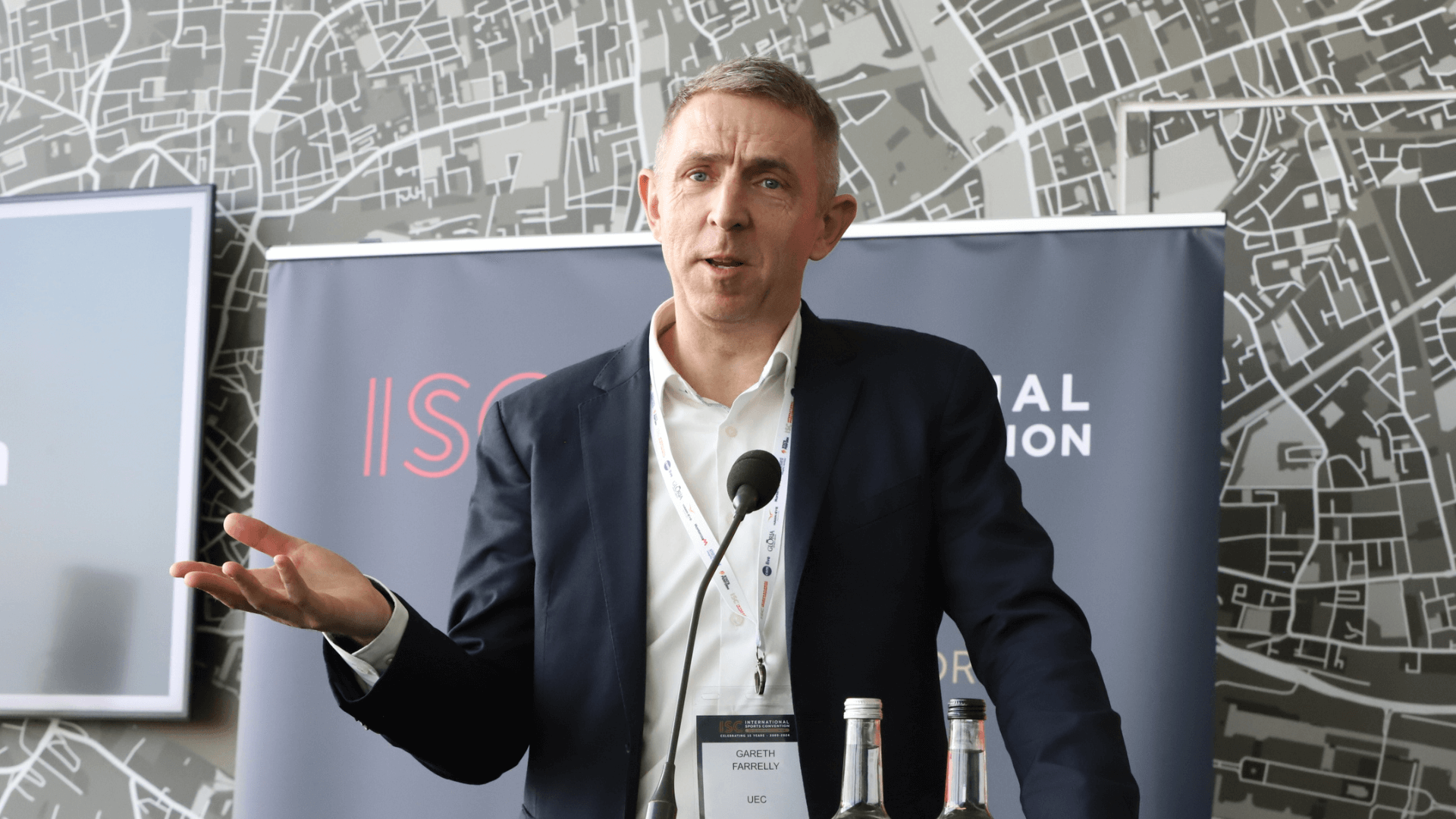⚽️ Gareth Farrelly, our very own Commercial Litigator and Sports Lawyer, took centre stage at the INTERNATIONAL SPORTS CONVENTION, captivating the audience with his visionary outlook on the future of European football. From navigating the evolving landscape to advocating for inclusive decision-making, Gareth left no stone unturned! ⚽🔍
While the conference may be over, the conversation is far from finished. Gareth’s thought-provoking viewpoints have ignited inspiration, prompting us to wonder: What do we want the game to look like in the next five years? 🤔
Union of European Clubs – A different way forward in European Football
Gareth Farrelly started by talking about the speed of change in football and asked the question: “What do we want the game to look like in the next five years?”
On his first visit to the new Tottenham Hotspur stadium, he referenced the announcement of the Government’s plans for an Independent Regulator for football, the failed plan for a European Super League, and the points deductions for Everton and Nottingham Forest in the Premier League.
No one knows what will happen next.
Of football clubs, Farrelly asked: “Who is making the decisions that affect you? Do you have the ability to affect those decisions?”
The elite clubs are represented by the European Club Association, which has a restricted membership, but there had been no body representing non-elite professional clubs.
The Union of European Clubs was created in April 2022, from the realisation that smaller and medium sized clubs lacked a voice in decision making. The aim is to create a fair, sustainable and balanced ecosystem for football.
137 clubs have joined the UEC already. Across Europe, there are still another 1400 who have not.
Farrelly outlined the UEC model for operating, which is open to all professional clubs playing in one of the 55 UEFA national associations. There is no hierarchy-the model is ‘truly open and democratic’.
Farrelly noted how the competitive balance has decreased across Europe on a domestic level, and in the UEFA Champions League. He outlined how UEFA’s decision-making affects the whole football ecosystem, but asked, “Who are the people making those decisions? Power is consolidated at the higher end.”
Original Article available here.

